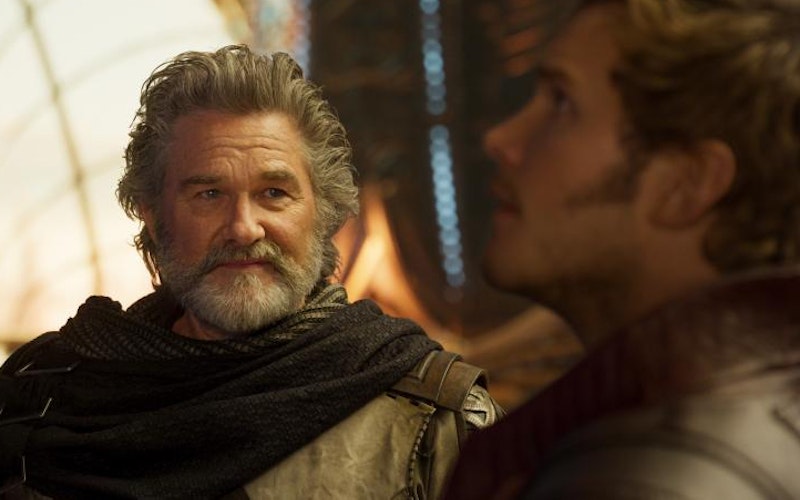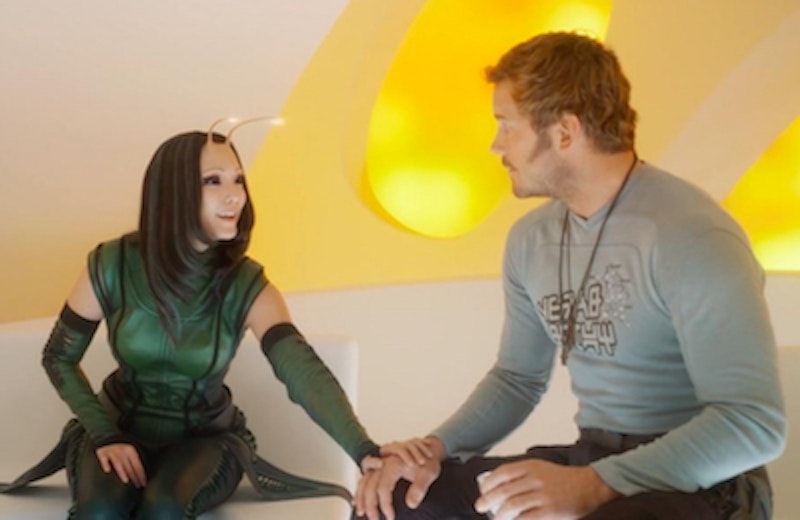
Movies
Guardians of the Galaxy’s “small g god”
For those raised on certain cult action movies of the 1980s (Escape From New York, Big Trouble in Little China), Kurt Russell is already something of a god. And so it wasn’t much of a stretch to cast him as a god figure in Guardians of the Galaxy Vol. 2, a bludgeoningly bombastic—if theologically intriguing—sequel to the 2014 comic-book space comedy.
It doesn’t spoil much to say that Russell’s character, Ego, is the father of Peter Quill (Chris Pratt), the movie’s smart-aleck hero. This is revealed early on in Guardians of the Galaxy Vol. 2 when Quill and his band of weirdo mercenaries (including a genetically enhanced, talking raccoon) are rescued by Ego in a space battle. Quill hears the story of his father’s visit to Earth decades ago, where a romance with Quill’s mother led to his birth. Ego then disappeared before Quill had a chance to know him.
Ego, we learn, is a “celestial.” Not God, exactly. As he tells Quill: “Small g, son.” Yet he does have the power to create—a human body for himself, as well as an entire planet that is an extension of his own being. Yet this planet, as beatific as the vast CGI vistas seem to be, proved to be lonely for Ego. “I wanted to experience what it truly meant to be human,” he says. And so he visited Earth and “made” Quill.
Ego initially presents himself as a giver, but something is amiss.
You can probably already see why Ego is a “small g” god. The God of the Bible isn’t lonely. He exists in relational harmony with the Son and the Holy Spirit. Further, while it’s true that we were made to praise him, our purpose in doing so is not to feed God’s ego (small e). In Genesis, our mandate is to steward his creation, which is indeed one way to offer praise. Eden, then, is a gift to us and we are a gift to it. God is the giver.
Ego initially presents himself as a giver in Guardians of the Galaxy Vol. 2. He offers Quill not only a family reunion, but access to his own creative powers. Yet something is amiss—the striking image of Ego’s planet taking the shape of his scowling face, like the iconic image from Georges Melies’ A Trip to the Moon, is one of our first clues. I’ll avoid further spoilers on this point, but suffice it to say Ego becomes even less God-like (big G) as the movie goes on.

There is another, smaller character, however, who offers a more familiar representation of our loving God. On their adventure, Quill and his fellow guardians encounter Mantis (Pom Klementieff), a humanoid with ladybug features who describes herself as an “empath.” When she touches someone else, their emotions pass through her—causing her antennae to lift and illuminate at the ends in a decidedly empathetic gesture. Her “reading” of the guardian Drax (Dave Bautista), a hulking warrior with a tormented past, is one of the movie’s few tender moments.
If Ego offers an empty shadow of the God we know, Mantis is a better vision of the God who came to know us. Jesus, who was there in the beginning, refused to scrap his creation when things went awry. Instead he entered into the fray as one of us, to live and die on our behalf. It’s a small observation to make in the face of such an immense gift, yet still worth pointing out: no ego was served in that gracious act.
Topics: Movies, Culture At Large, Arts & Leisure